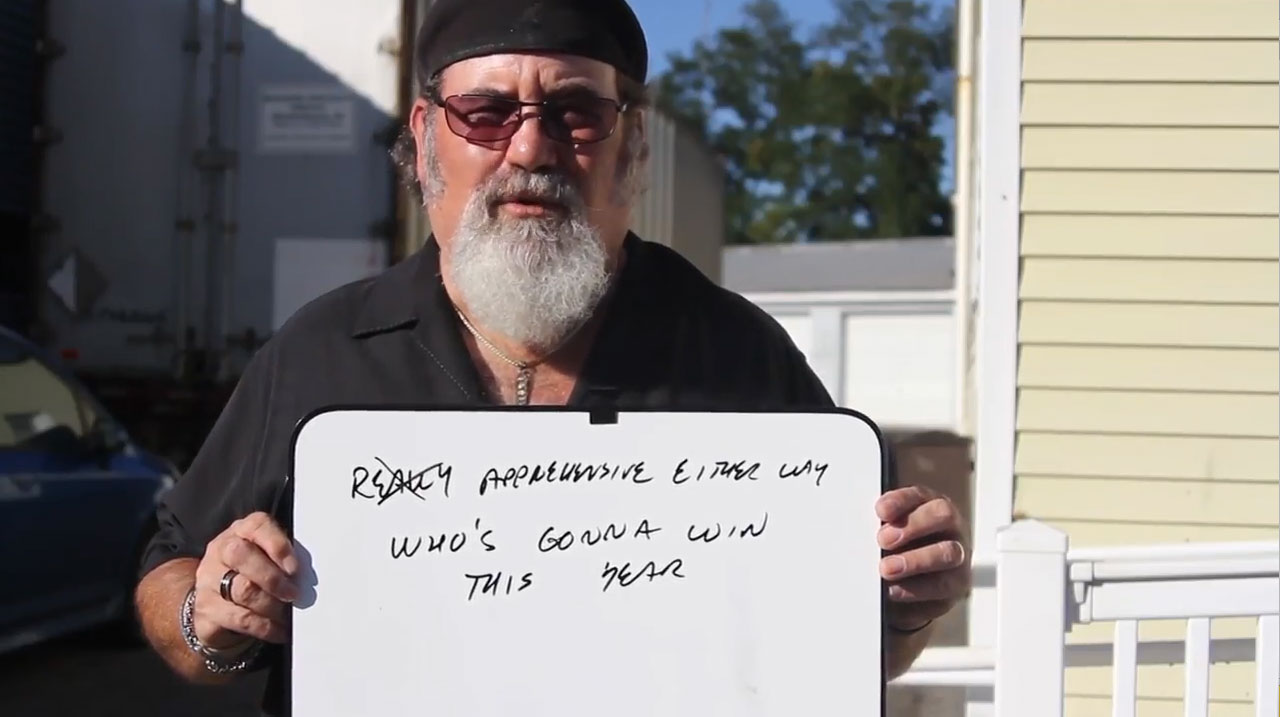
WGAL News Director Dan O’Donnell contacted Elizabethtown College this past summer to see how the Lancaster, Pennsylvania, NBC-affiliate could collaborate with students on 2016 pre-election coverage.
Kirsten Johnson, associate professor of communications, suggested six-word story videos.
Her idea came from colleague Richard Newton, assistant professor of religious studies, who, in turn, had been inspired by Michele Norris’ Race Card Project. Newton introduced six-word stories to campus, last year, as a means of opening discussion about race.
Intrigued by the economy of words, Johnson shared the idea with WGAL’s O’Donnell who embraced it and upped the word count to match the station number—TV8.
It was great real-world learning. We hit a lot of objectives.”
To master the video skills necessary to produce high-quality eight-word stories, Johnson’s broadcast news and copywriting students had to learn at lightning speed. “It was great real-world learning,” she said. “We hit a lot of objectives.”
Johnson said, she had the students take the lead on the content of the videos. “’What do we want them to look like, what do we want them so say?’,” she asked of the nine juniors and seniors.
The students settled on “This election year, what are you thinking about?” and directed their videos at various locations across the county—coffee shops, farmers’ markets, a brewery.
“I originally wanted to go to a fried chicken place in Harrisburg, but I never heard from them,” said Abbie Erickson, senior communications major, who found the public not so eager to work with the media.
[youtube width=”300px” height=”200px”]RWdqNBw1kMM[/youtube]
She had also contacted a hair salon that was equally disinterested, she said. Eventually, Clearview Lanes, a bowling alley just a stone’s through from the Elizabethtown College campus, welcomed recorded interviews.
Upon arrival, however, she continued to be turned down by patrons who did not want to talk about politics or be on camera. Erickson said it was good on-the-spot learning for how to cope with rejection and move on.
The bowling alley was perfect for ambient sound, the student said. “I loved the natural sounds. The pins dropping.” Finally, she found a woman to interview who, Erickson said, had “a great laugh.”
After the interview, Erickson had her second aha moment—tight deadlines. “I had to find someone, shoot the story, edit, lay down voiceover ….” Under pressure or not, editing was the student’s favorite step in the process, she said. It gave her the opportunity to find out what she’s good at and use that talent to the best of her abilities.
Deadline and reject also marked senior communications major Clark Stefanic’s video experience, making him more aware of the need for adaptability in the workplace.
If he was rejected for an interview he had to regroup and try again appealing to the interviewee. Interestingly, Stefanic said, the two internships he’s completing this semester—one on campus, one off—aided him in the classroom. Working with clients had prepared him for producing quality video on tight deadlines.
The video standard expectations were high, Johnson said, because the clips were shared on WGAL’s webpage prior to election day. “Sometimes students will do something in a class that only people in the class see. This was a chance for a mass audience, hundreds of thousands of people. There was pressure to do outstanding work for a No. 1 station.”

